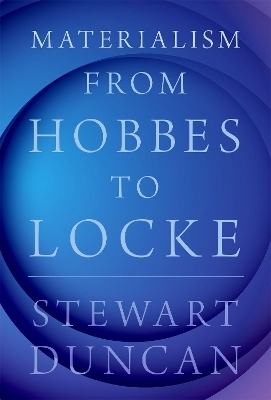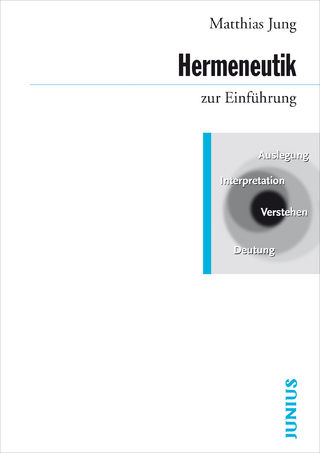
Materialism from Hobbes to Locke
Oxford University Press Inc (Verlag)
978-0-19-761300-9 (ISBN)
This book is about how a series of seventeenth-century philosophers tried to answer that question. It begins by looking at the views of Thomas Hobbes, who developed a thoroughly materialist account of the human mind, and later of God as well. This is in obvious contrast to the approach of his contemporary René Descartes. After examining Hobbes's materialism, Stewart Duncan considers the views of three of his English critics: Henry More, Ralph Cudworth, and Margaret Cavendish. Both More and Cudworth thought Hobbes's materialism radically inadequate to explain the workings of the world, while Cavendish developed a distinctive, anti-Hobbesian materialism of her own. The second half of the book focuses on the discussion of materialism in John Locke's Essay concerning Human Understanding, arguing that we can better understand Locke's discussion if we see how and where he is responding to this earlier debate. At crucial points Locke draws on More and Cudworth to argue against Hobbes and other materialists. Nevertheless, Locke did a good deal to reveal how materialism was a genuinely possible view, by showing how one could develop a detailed account of the human mind without presuming it was an immaterial substance.
This work probes the thought and debates that originated in the seventeenth-century yet extended far beyond it. And it offers a distinctive, new understanding of Locke's discussion of the human mind.
Stewart Duncan is Associate Professor of Philosophy at the University of Florida, where he has taught since 2005. He is the author of numerous articles on Hobbes, Leibniz, and other seventeenth-century philosophers, and the editor (with Antonia LoLordo) of Debates in Modern Philosophy (Routledge, 2013).
"This elegant volume makes a strong case for the historical importance, and intrinsic interest, of materialism in seventeenth century English philosophy Duncan's book is an important new contribution...In conclusion: there is a welcome directness, and charity, even humility, throughout this concise volume. Duncan clearly knows his stuff; but there is no boasting or exaggerated theorizing. He hews closely to the texts and draws only modest
conclusions, when no more is justified. Like Locke himself, Duncan appreciates the immense difficulty of the materialism question, and does not pronounce more than is warranted. This makes for an edifying and
generous study, which might be returned to often by scholars and students of early modern European metaphysics." -- Philosophy in Review
| Erscheinungsdatum | 13.12.2021 |
|---|---|
| Verlagsort | New York |
| Sprache | englisch |
| Maße | 218 x 150 mm |
| Gewicht | 386 g |
| Themenwelt | Geisteswissenschaften ► Philosophie ► Allgemeines / Lexika |
| Geisteswissenschaften ► Philosophie ► Geschichte der Philosophie | |
| Geisteswissenschaften ► Philosophie ► Metaphysik / Ontologie | |
| Geisteswissenschaften ► Philosophie ► Philosophie der Neuzeit | |
| ISBN-10 | 0-19-761300-4 / 0197613004 |
| ISBN-13 | 978-0-19-761300-9 / 9780197613009 |
| Zustand | Neuware |
| Informationen gemäß Produktsicherheitsverordnung (GPSR) | |
| Haben Sie eine Frage zum Produkt? |
aus dem Bereich


